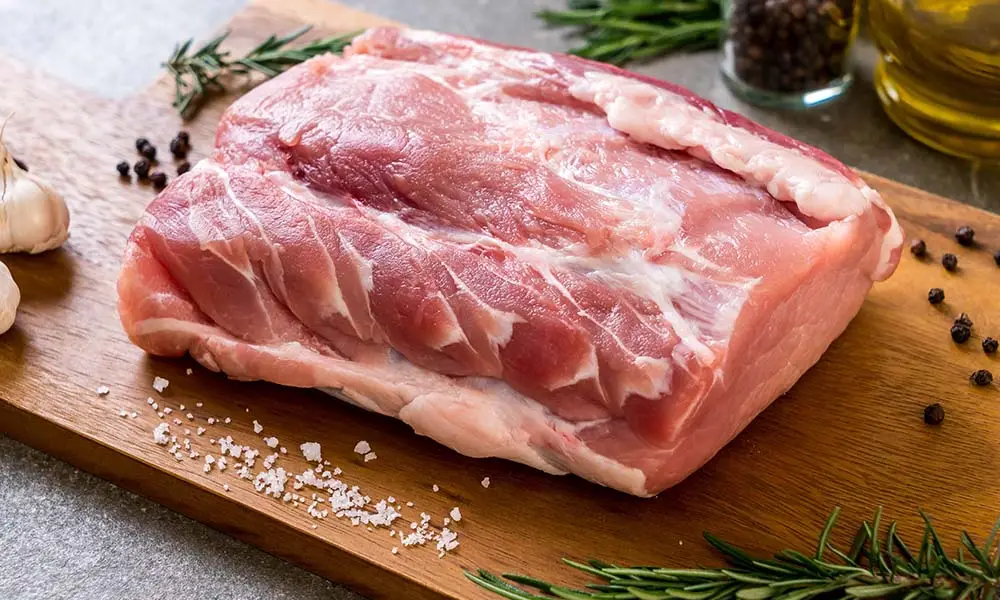Pork has long been a staple in many diets worldwide, prized for its flavour, versatility, and nutritional profile. While it sometimes gets overshadowed by other proteins, pork offers a wealth of health benefits, especially when choosing lean cuts and preparing it with care. Let’s explore the top health benefits of pork and why it deserves a place on your plate.
Pork Health Benefits: Why It’s Great for You
1. Pork Is a High-Quality Protein Source
One of the main reasons pork is so famous is its high-quality protein content. Protein is crucial for muscle growth, repair, and overall bodily function, making it a key component of a balanced diet. Pork contains all nine essential amino acids, making it a “complete” protein that supports healthy muscles, tissue repair, and immune function.
This high-quality protein benefits active individuals, athletes, bodybuilders, and anyone recovering from surgery or injury. By including pork in your diet, you’re fuelling your body with the amino acids needed for muscle repair and growth, helping you maintain strength and energy in daily life with Essential B Vitamins
Pork is rich in several B vitamins vital to the body’s energy production and metabolic processes. These B vitamins include thiamine (B1), niacin (B3), riboflavin (B2), vitamin B6, and vitamin B12, each with unique benefits:
- Thiamine (B1): Helps convert carbohydrates into energy and supports heart, muscle, and nerve function.
- Niacin (B3): Aids in energy production and assists in maintaining healthy skin.
- Riboflavin (B2): Important for cell function and growth, as well as the breakdown of fats and protein.
- Vitamin B6: Plays a crucial role in brain health and mood regulation.
- Vitamin B12: Essential for red blood cell formation and nervous system function.
These B vitamins also contribute to maintaining a healthy metabolism, supporting the body’s ability to create energy from our foods. Additionally, vitamin B12 is particularly beneficial for those who follow a meat-inclusive diet, as it’s only naturally found in animal products and is critical for preventing anaemia and supporting brain health.
3. SourceIron
Iron is essential for transporting oxygen throughout the body and preventing fatigue. Pork provides “heme iron,” a type of iron that is more easily absorbed by the body than the non-heme iron found in plant sources. This makes pork an effective option for preventing iron deficiency anaemia, especially for people with higher iron needs, such as pregnant women, young children, and those with heavy menstrual cycles.
Iron from pork helps maintain energy levels, improve cognitive function, and support overall health. Including iron-rich foods like pork in your diet is an effective way to support the body’s oxygen-carrying capacity, reducing feelings of tiredness and promoting vitality.
4. Low in Fat
While choosing pork is often considered fatty meat, lean cuts like pork tenderloin and loin chops are surprisingly low in fat. Many lean cuts of pork contain only about 4% fat, making it an excellent option for those aiming to reduce saturated fat intake. Lean pork also contains less saturated fat than other meats, such as beef, making it a heart-healthy choice in moderation.
By opting for lean cuts of pork, you can enjoy the health benefits without the extra calories from fat. These lean options are ideal for those who want to include pork in a balanced diet without overindulging in fat content.
5. Rich in Selenium and Zinc
Pork is valuable, particularly selenium and zinc, both of which contribute to overall health:
- Selenium is a powerful antioxidant that helps protect cells from damage and supports immune function. It also regulates metabolism and energy production in thyroid health.
- Zinc: Known for its immune-boosting properties, zinc is essential for wound healing, cell production, and DNA synthesis. It also helps maintain a healthy immune system, keeping the body prepared to fight off infections and illnesses.
Selenium and zinc are particularly important for people who may be at risk of deficiencies, such as those with limited dietary variety. Including pork in the diet ensures a steady intake of these essential minerals.
6. Supports Muscle Maintenance and Physical Performance
Pork is good for building and maintaining muscle, especially as we age. Its high-quality protein aids in muscle retention, essential for mobility, strength, and physical independence. Pork also contains beta-alanine, which helps reduce muscle fatigue and improve exercise performance. This makes pork an intelligent choice for those looking to enhance their physical performance and maintain muscle health over time.
For fitness enthusiasts and those with active lifestyles, incorporating pork into posprovide the necessary nutrients to support recovery and endurance. Its rich protein and beta-alanine content make it a powerful ally in reaching fitness goals and sustaining long-term physical health.
Wrapping up
Pork offers many health benefits that make it an excellent addition to a balanced diet. From its high-quality protein and vital B vitamins to its easily absorbed iron and essential minerals, pork supports various aspects of health, from energy production to muscle maintenance. Choosing lean cuts can help you enjoy the benefits while keeping fat intake in check, making pork a nutritious option for people of all ages and lifestyles.
Discover premium, healthful pork options with Gingin Grass Fed, and elevate your meals with quality and nutrition.
Frequently Asked Questions
Yes, pork is an excellent source of high-quality protein that supports muscle growth, repair, and overall bodily function.
Pork is rich in B vitamins, including B12, which supports energy production, brain function, and red blood cell formation.
Absolutely. Lean cuts like pork tenderloin have lower fat content, making them suitable for a balanced diet when consumed in moderation.

